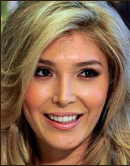Strange case raises odd question: What is a woman?

Transgender Miss Universe pageant contestant sparks controversy about the definition of womanhood
In a much-publicized move, the Miss Universe beauty pageant has tweaked its policies to allow transgender women to compete. The decision has sparked controversy and is being lauded by civil rights advocates as a major step forward for transgendered people. But ultimately, the hype amounts to little more than hyperbole. The rule change is more a symbolic gesture than a history-making event.
Jenna Talackova, the 23-year-old transgender beauty queen in question, was initially blocked from competing in the 2012 Miss Universe Canada pageant. Pageant officials cited a rule stating that contestants must be “naturally born” women. Talackova responded by hiring a top civil rights lawyer and publicly criticizing Donald Trump, who co-owns the Miss Universe pageant with NBC.
The Gay and Lesbian Alliance Against Defamation (GLAAD) provided some of the impetus for the rule change, demanding that Talackova’s case be reviewed by the Miss Universe Organization, according to an article by the New York Daily News. Other civil rights organizations have voiced their support as well.
“Everybody should be allowed to participate in every aspect of society,” Mara Keisling, executive director of the National Center for Transgender Equality, said, according to the article “Miss Universe Pageant Allowing Transgender Women” on abcnews.go.com. “Absolutely it’s good news, it’s another pernicious structural discrimination barrier taken down.”
Already, only a week after the announcement, the policy shift is referred to as if it was a grand harbinger of absolute tolerance.
“At a time when transgender people are still routinely denied equal opportunities in housing, employment and medical care, today’s decision is in line with the growing levels of public support for transgender people across the country,” GLAAD spokesperson Herndon Graddick said, according to the article “Transgender Model WILL Compete for Miss Universe Crown … Then Wants to be a Mum” on mirror.co.uk.
Forgive the cynicism, but aren’t we talking about a beauty pageant here? It seems premature to generalize this rather trivial allowance to society’s larger ills. Some supporters address this topic with all the gravitas of Abraham Lincoln calling for emancipation of the slaves.
Beauty pageants have been criticized in the past for objectifying women, judging them purely on their external appearance while factors such as personality and talent fall by the wayside. In 1968, the first protest against the Miss America Pageant was staged in Atlantic City. Women from all over the country protested by crowning a live sheep Miss America and tossing “instruments of torture to women” (high heels, fashion magazines) into a “Freedom Trashcan,” according to “A History of Feminist Activism at Miami University, Oxford Campus” on lib.muohio.edu.
The inclusion of a transgender individual in a national beauty pageant may represent a step backward rather than a step forward. Talackova’s Miss Universe Canada bid only encourages society to judge her (and by extension, other transgendered women) by her looks and not the content of her character. It pushes the question “is this transgendered person passable as a beautiful woman?” more than it does “why do we discriminate against people like her?”
Perhaps the question we should be considering, then, is why can’t we move past beauty pageants and discuss issues that could actually have some relevant importance?

